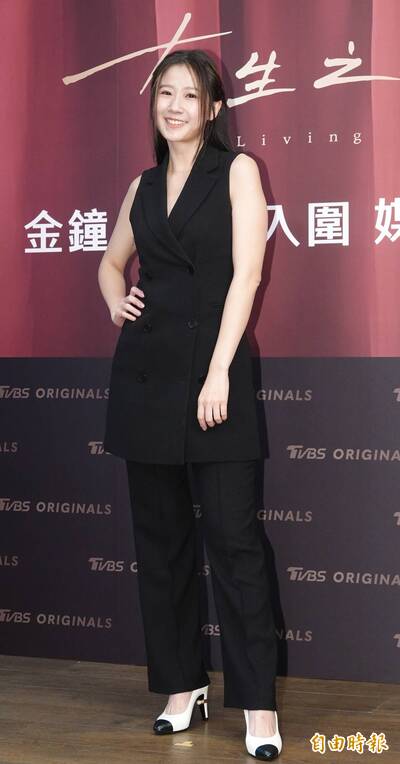《TAIPEI TIMES 焦點》 Eric Chu puts hand up for KMT role

New Taipei City Mayor Eric Chu speaks at a meeting in the municipality yesterday. Photo: Wang Yi-sung, Taipei Times
NEW CONTENDER: The New Taipei City mayor’s nomination for the ruling party’s chairmanship prompted Hau Lung-bin to retract his statement about running
By Shih Hsiu-chuan / Staff reporter
New Taipei City Mayor Eric Chu (朱立倫) yesterday declared his candidacy for chairman of the Chinese Nationalist Party (KMT), vowing to lead the party to regain its founding principles — a party of the people, by the people and for the people, as championed by party founder Sun Yat-sen (孫逸仙).
If he is elected chairman, Chu said the party would push for a constitutional amendment to implement the idea of “authority commensurate with responsibility,” aiming to hold a referendum on the amendments along with the 2016 presidential election and have the changes take effect in 2020.
The announcement made by Chu on Facebook at about 7am immediately prompted outgoing Taipei Mayor Hau Lung-bin (郝龍斌) to retract the statement he made on Thursday regarding his willingness to run for the chairmanship if no suitable candidate stepped forward.
Chu, who was re-elected for a second term in the nine-in-one elections on Nov. 29, said he would finish another four-year tenure instead of running for the presidency in 2016.
President Ma Ying-jeou (馬英九) resigned the chairmanship, which he had held since 2009, earlier this month to take responsibility for the party’s rout in the elections, but insisted that the “general line” he has adopted in leading the nation was not a reason contributing to the party’s loss.
Chu appeared to have a different view from Ma.
In his statement, Chu said the party needed to draw lessons from the bitter loss by thoroughly reviewing its “general line” and policies, because the people’s anger expressed through the ballot box was “vicious.”
The KMT used to be considered more capable of handling economic and cross-strait issues, Chu said, but general feelings about shrinking wallets, unequal distribution of wealth, skyrocketing housing prices and controversies surrounding the 12-year educational program and food safety “enhanced public discontent toward us and caused people to lose trust in the government.”
Chu said the problems resulted from a market economy failure, a dysfunctional political system and nepotism and cronyism that have plagued affairs to the point where the general public does not receive dividends from the peaceful development of cross-strait relations.
“The dark sides of a market economy and capitalism have emerged in Taiwan,” he said.
The KMT needs to propose tax policies that can contribute to a more rational distribution of wealth, defuse the myth that economic growth automatically brings about efficiency and fairness, create an environment where the younger generations can succeed as long as they work hard, and assert its beliefs in land justice and a sustainable environment, Chu said.
Chu also advocated amendments to the Constitution, which he said has proven incapable of resolving the country’s problems because the political system has reached an impasse under the current framework.
The only way to break the political impasse and to transcend polarization between the pan-blue and pan-green camps is to implement the idea of “authority commensurate with responsibility” and to enlarge public participation in the political system, he said.
It is imperative that the structure of government be altered from its current form as a quasi-presidential system to a parliamentary system, Chu said.
Chu added that lowering the voting age from 20 to 18, reducing the threshold for a political party to be given subsidies and seats in the legislature proportionally from the current 5 percent of total votes in a nationwide election to 3 percent, enabling absentee voting and reviewing the legislative electoral system would all be included in the party’s proposal as he pushes for constitutional reform.
On the issue of the KMT’s assets — which critics call “ill-gotten” because they were taken over by the party from the Japanese colonial government, private businesses and individuals when it took control of Taiwan in the late 1940s — Chu said the party, under his leadership, would return what was illegally gained and use legally gained assets to cultivate talent.
Because of a razor-thin margin of 24,525 votes, or 1.28 percent, higher than DPP New Taipei City candidate Yu Shyi-kun in the election, Chu said he is grateful to have a second term and cherishes the opportunity.
“For the sake of Taiwan’s democracy, I cannot leave the KMT in a lurch. I have to run for chairman. It does not matter if people favor the KMT in power or bring it down in the future, we must stand by the people all the time, stick to the values of fairness and justice, and regain the founding principles of the party,” Chu said.
Later yesterday, Chu emphasized the importance of constitutional reform.
“We cannot let one-party dominance undermine democracy in Taiwan,” he told reporters at his office yesterday afternoon.
Legislative Speaker Wang Jin-pyng (王金平), widely rumored to be interested in the job, said he had no comment on Chu’s bid and respected his decision.
In addition to Chu, KMT Taipei City Councilor Lee Hsin (李新), media personality Clara Chou (周玉蔻) and three others had collected the documents needed to sign up as a candidate yesterday, the first day to register. The election is scheduled for Jan. 17.
新聞來源:TAIPEI TIMES


















